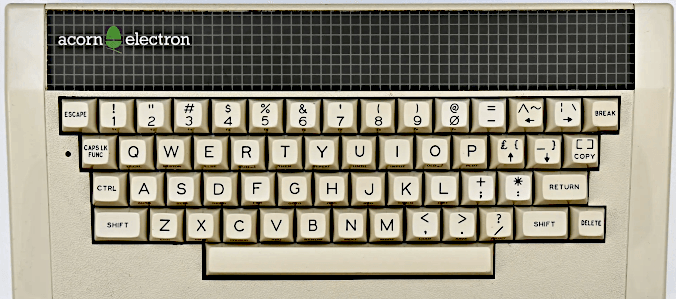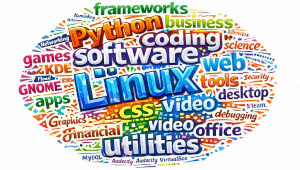Emulation is the practice of using a program (called an emulator) on a PC to mimic the behaviour of a home computer or a video game console, in order to play (usually retro) games on a computer.
Home computers were a class of microcomputers that entered the market in 1977 and became common during the 1980s. They were marketed to consumers as affordable and accessible computers that, for the first time, were intended for the use of a single non-technical user.
Back in the 1980s, home computers came to the forefront of teenagers’ minds. Specifically, the Amiga, ZX Spectrum, and Atari ST were extremely popular. They were hugely popular home computers targeted heavily towards games, but they also ran other types of software.

Launched in August 1983, the 8-bit Acorn Electron microcomputer sported a Synterek SY6502A CPU clocked at 2MHz (only 1MHz when accessing RAM).
The machine had 32KB of RAM. It was a budget alternative to the BBC Micro Model B. Priced at £199, the Electron had sales of approximately 250,000 units over its commercial lifespan.
Electron ROMs
To use Clock Signal, you need to provide images of the system ROMs. You need the Acorn BASIC II ROM and the Electron MOS ROM v1.00.
The copyright status of these ROMs is uncertain, so they aren’t included with Clock Signal. But the BASIC ROM is included with a different emulator, Elkulator, and the Electron MOS ROM v1.00 (os.rom) can be found easily online.
Emulators
Our recommended emulator for the Acorn Electron is Clock Signal. This is a high quality emulator. It supports a wide number of home computers including the Electron. Through static and runtime analysis CLK seeks automatically to select and configure the appropriate machine to run any provided disk, tape or ROM; to issue any commands necessary to run the software contained on the disk, tape or ROM; and to provide accelerated loading where feasible. This emulator attempts cycle-accurate emulation of all supported machines.
Other emulators worth trying are Elkulator and MAME.
Electron Software
As with every home computer, there are some awesome games, some good ones, and plenty of dire games.
Our favourite games include Exile and the famous Elite, the latter revolutionised gaming with its 3D graphics, expansive game world and balanced blend of space trading and combat. Other really addictive games include Snapper (the classic game Pacman), Arcadians, Beach Head, Chuckie Egg, and Jet Set Willy as well as Jet Set Willy 2.
Other articles in this series:
| Home Computers | |
|---|---|
| Amiga | Family of personal computers introduced by Commodore in 1985 |
| Amstrad CPC | Combined the computer, keyboard and data storage in a single unit |
| Atari ST | A popular line of personal computers from Atari Corporation |
| BBC Micro | Series of computers designed and built by Acorn |
| Commodore 64 | Hugely popular home computer |
| Dragon | Built around the Motorola MC6809E processor running at 0.89 MHz |
| Electron | A microcomputer sported a Synterek SY6502A CPU clocked at 2MHz |
| MSX | A popular range particularly in Japan |
| Oric | The underrated Oric-1 and Oric Atmos |
| QL | Based on a Motorola 68008 CPU clocked at 7.5 MHz with 128KB of RAM |
| TRS-80 | Very early mass-produced and mass-marketed retail home computers |
| VIC-20 | 8-bit home computer that was released in 1980/1 |
| ZX80 | Predecessor to the ZX81; ignited the UK's home computer market |
| ZX81 | Low-cost introduction to home computing notorious for its RAM pack wobble |
| ZX Spectrum | One of the biggest selling home computers |
 Read our complete collection of recommended free and open source software. Our curated compilation covers all categories of software. Read our complete collection of recommended free and open source software. Our curated compilation covers all categories of software. Spotted a useful open source Linux program not covered on our site? Please let us know by completing this form. The software collection forms part of our series of informative articles for Linux enthusiasts. There are hundreds of in-depth reviews, open source alternatives to proprietary software from large corporations like Google, Microsoft, Apple, Adobe, IBM, Cisco, Oracle, and Autodesk. There are also fun things to try, hardware, free programming books and tutorials, and much more. |

